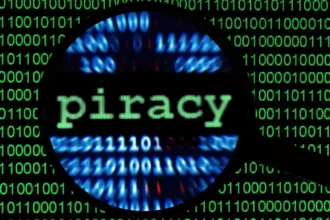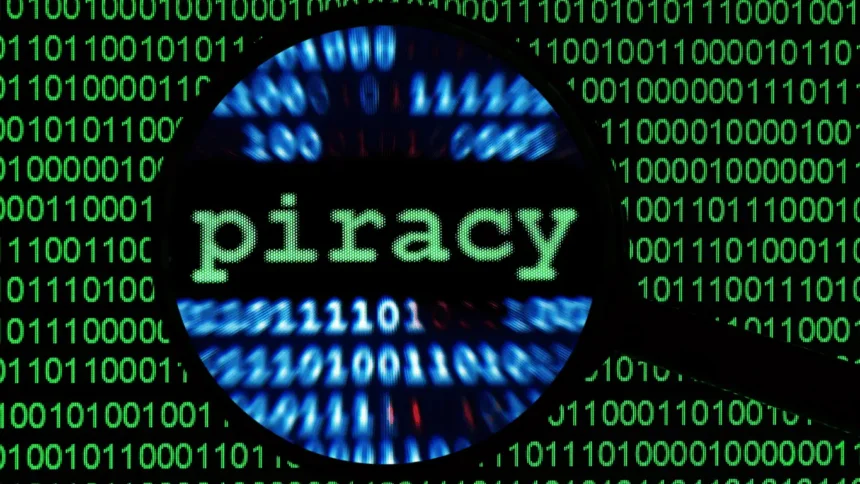With the advent of the digital era, information travels quicker and further than ever. Unluckily, it implies that pirating is more advanced and harmful. Whether it be movies and software, online courses and eBooks, there is no single industry that is not subject to piracy. Companies not only lose finances, but they also face the threat of losing their brand image and the confidence of consumers. Waiting to take action after the content was stolen is no longer an option. Moreover, this is where proactive protection steps come into play. However, attaining quality anti piracy solutions for your content ensures its security, and your business can thrive without the side effects of keeping digital thieves away. Therefore, with threat intelligence, companies can protect their intellectual property in advance, preventing damage.
Why You Need Proactive Anti-Piracy Solutions
When you make anything, from a song to a movie, a book or any software, you pour a lot of time, effort and resources into realizing that idea. Most industries and economies are based on this work of creativity, which is what many people refer to as their property. However, in this central concern, Internet piracy is a daunting problem that directly puts anti-piracy efforts to the real test. Therefore, all these solutions should not only be practical but also good.
1. Safeguarding Revenue and Livelihoods:
The direct consequences are the huge amounts of foregone revenue lost by producers and companies. By making content illegal to share or download, it effectively reduces the number of regular sales significantly, as the numbers decline substantially. It’s not just about big companies. Small studios and novice creatives, who are often independent, usually depend on sales to earn a living and finance their future productions.
However, in addition to direct sales, piracy destroys the whole economic system that is based on the creative industries. Less money in revenue will lower production budgets, prevent opportunities to artists and technicians and an overall state of decay of the sector.
2. Protecting Intellectual Property Rights:
Legal provisions empower creators to monopolize their original works and control how their compositions are shared and used.
Moreover, piracy arguably violates these rights completely, as it allows others to use creators’ work without permission or compensation. All this type of ignorance of legal ownership can prove very disappointing to a person who has invested their resources of heart into art.
Anti-piracy activities strongly deter unauthorized acts and reinforce that creative works are valuable resources that deserve protection.
3. Maintaining Reputation and Quality Control
The illegal copies of the material are generally sold on low-grade formats swamped with promotional materials or even hacking codes. Customers using these pirated products will also have a negative experience with the original product.
They may end up blaming it due to improper functionality, which can lead to a bad reputation and loss of trust. Additionally, this can be particularly detrimental, especially to businesses offering high-quality products.
Anti-piracy solutions ensure consumers access content legally, guaranteeing quality, safety, and overall satisfaction. Moreover, it also enables businesses to protect their brand image and consumer trust by actively fighting illegal distribution.
4. Encouraging Innovation and Investment:
With such widespread pirating in the air, there is a chance of very strong cramping of the innovation drive. When creators and firms understand that their products can be stolen and freely distributed.
They might be less eager to engage in the long-term production of new content or more advanced technologies, as they can spend significant amounts of their time, talents, and capital to achieve this goal. Such indecisiveness might result in a less diverse creative landscape.
The best anti-piracy solutions offer considerable protection against piracy, hence making the environment of creative activity safer. However, the confidence makers gain from sufficient intellectual property protection enables them to take risks and invest in innovative ventures.
5. Protecting Consumers from Risks:
Although it might be believed that no one is a victim in piracy, the viewing of unlawful content has many risks to the viewer.
Suspicious files and streaming sources, similar to viruses, spyware, or ransomware are often the starting points of rogue applications that may interfere with personal data, corrupt a device, or facilitate identity theft. These locations tend to expose consumers to unaltered and unappetizing text.
The indirect consumer protection is that anti-piracy solutions encourage consumers to use legitimate and secure content purchase channels.
This will enable a better digital experience, making it safer and more secure for everyone. The best solutions offer real-life examples of infringement through monitoring and collaboration with law enforcement.
6. Fostering a Good Market and Fair Competition
Piracy also skews competition in the market, creating an unbalanced market. Easily accessible pirated content causes losses to companies investing in legal production, distribution, and ethical business practices.
Such a free ride for pirates is counterproductive to the actual idea of fair competition, making it hard for businesses to prosper and recoup investments. Awareness messages are also intended to create a playing field.
Moreover, they discourage illegal content by making it less available, which prompts consumers to use only legal methods and promote businesses that are within the law.
7. Preserving Cultural Heritage and Diversity
In addition to the direct financial and legal consequences, rampant piracy may significantly affect the values of culture and diversity. The worst thing about not giving the creators their due reward is that it dramatically discourages them from coming up with new and original work.
This may reduce the output of diversity, as artists will have to shelve smaller yet culturally enriching projects due to the need to adapt to the market. Taking action against piracy preserves the ecosystems behind cultural production, including indie films, academic content, and software.
Final Words
To sum up, good anti-piracy measures are important in preventing the piracy of content and compensating its creators accordingly. They discourage illegal replication and sales, protecting their revenues and brand names. Effective solutions prevent piracy, preserve the value of content, and save industries founded on creativity and hard work.
In the absence of desirable protection, innovation comes to an end, and legal businesses perish. Doverunner is a robust and utterly simple to deploy enterprise-level defence facility to protect your digital assets. Thus, it will act as a barrier to content theft, protecting your digital property as it should.








